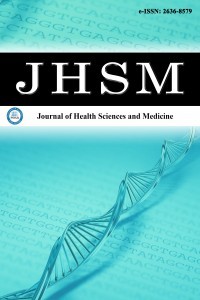
Journal of Health Sciences and Medicine
Yazarlar: ["Ece ÜNAL ÇETİN", "Yavuz BEYAZIT", "Fatma BEYAZIT", "Alpaslan TANOĞLU", "İbrahim Celaleddin HAZNEDAROĞLU"]
Konular:-
DOI:10.32322/jhsm.1090521
Anahtar Kelimeler:COVID-19,SARS-CoV-2,ACE2,Renin-angiotensin system,Bone marrow
Özet: Coronavirus disease 2019 (COVID-19) outbreak, caused by severe acute respiratory syndrome coronavirus 2 (SARS-CoV-2), poses an unprecedented threat to public health and healthcare systems. It presents unusual pathophysiological effects mainly characterized by immune-inflammatory response and prothrombotic state causing acute respiratory distress syndrome and multiple organ failure. SARS-CoV-2 enters target cells after binding to the angiotensin-converting enzyme 2 (ACE2) receptor and therefore has a direct effect on the renin-angiotensin system (RAS). Apart from affecting numerous organs including lungs, heart, gastrointestinal system, spleen, brain and kidneys, the spike protein of SARS-CoV-2 could attack hematopoietic stem cells and hematopoietic progenitor cells in bone marrow (BM) microenvironment together with the precursor and mature blood cells. Within this hematopoietic viral spread context, it is crucial to search the clinicopathological correlations of COVID-19 in order to develop specific potential therapeutics against pleiotropic SARS-CoV-2 actions. Therefore, pharmacological disruption of the pathological cross-talk of local BM RAS and pulmonary RAS via administration of the tissue-RAS modulating agents such as soluble ACE2, angiotensin (1-7), TXA127 and MAS receptor agonists may prevent the clinical progression of the COVID-19 syndrome via reducing the hematopoietic virus propagation and systemic multi-organ spread.